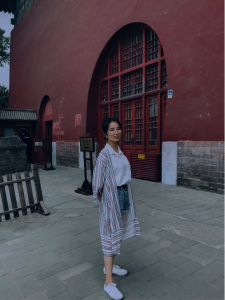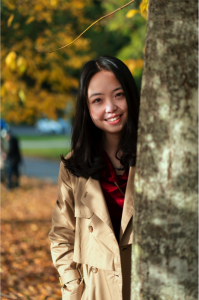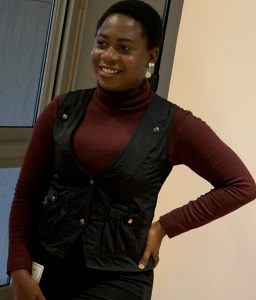| Terry Sunderland
Dr. Terry Sunderland is a Professor in the Department of Forest and Conservation Sciences in the Faculty of Forestry, University of British Columbia. Dr. Sunderland’s research focuses on the biological and human dimensions of the sustainable management and utilization of tropical forests. He was previously a Senior/Principal Scientist at the Centre for International Forestry Research (CIFOR), Indonesia, where he coordinated CIFOR’s work on forests and food security, biodiversity conservation, and integrated landscape management. Prior to joining CIFOR in early 2006, Dr. Sunderland was based in West Africa for over fifteen years and worked on numerous conservation and livelihood-focused projects. At UBC, he currently holds the following positions:
Email: terry.sunderland@ubc.ca |
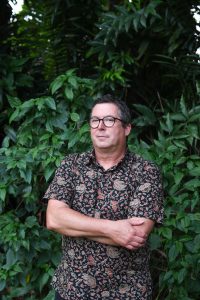 |
Adjunct Professors
| Sima Fakheran – Dr. Sima Fakheran is Associate Professor of Environmental Sciences at Isfahan University of Technology, Iran and Adjunct Professor in the Faculty of Forestry at the University of British Columbia (UBC), Canada.Dr. Fakheran is President of IALE–Iran (International Association for Landscape Ecology-Iranian Chapter) and Member of Academy of Sciences of Iran (IAS).She did her Ph.D. at the University of Zurich, Switzerland, and Previously, held the position of Head of the Swiss desk (Leading House for Iran–Switzerland Science and Technology Collaboration) & Director of International Affairs of Isfahan University of Technology, Iran.She also held the position of Vice President of International Association for Landscape Ecology (IALE) as the first woman selected as VP from the Middle East.
Email: sima.fakheran@ubc.ca | ResearchGate | Google Scholar |
 |
| Dr. Andrew Wardell – Dr. David Andrew Wardell is a Principal Scientist with the Sustainable Value Chains and Investments team at the Center for International Forestry Research (CIFOR)/World Agroforestry Centre (ICRAF) and Adjunct Professor in the Department of Forest & Conservation Sciences, Faculty of Forestry at the University of British Columbia (UBC).
He completed his PhD in Environmental History at the University of Copenhagen and was previously Director of CIFOR’s Forest Governance program, a Visiting Research Fellow at the Centre for World Environmental History at the University of Sussex, and a Danish diplomat in Cambodia. He speaks four languages fluently: English, French, Kiswahili and Danish. He has published more than 96 peer-reviewed journal articles and book chapters and co-edited a Cambridge University Press book – CITES As a Tool for Sustainable Development – in 2023. His current research interests include shea value chains in West Africa, REDD+ benefit sharing in East Africa, social impact assessment of FSC certification of natural forests and plantations in Brazil, the history of forest landscape restoration (global), the sustainable use and management of tropical upland peatlands (Papua New Guinea) and community-based wildlife conservation (southern and central Africa). His extensive experience in more than 20 countries in sub-Saharan Africa and south-east Asia will support the Sunderland Lab at UBC through teaching, student supervision, fund-raising and through his work on land and forest rights in developing countries, potential linkages with First Nation communities in British Columbia. Email: andrew.wardell@ubc.ca| a.wardell@cifor-icraf.org | ResearchGate | Google Scholar |
 |
Graduate Research Assistants
Postdoctoral Research Fellows
| Menelisi Falayi – I am a postdoctoral fellow at the University of British Columbia (UBC), working with Professor Terry Sunderland on the CoastMan project and collaborating with a wide range of consortium partners. My focus is on Nature-based Solutions (NbS), particularly mangroves, climate finance, and mitigation strategies. My research interests lie in social forestry and carbon markets.Previously, I served as a Carbon Projects Officer at CO2balance UK, where I developed NbS projects and drafted design documents for Verra and Gold Standard. I have also advised African governments and organizations on climate policy and international carbon trading schemes. Additionally, I have co-developed over 10 projects funded by the Green Climate Fund, Adaptation Fund, and Global Environment Facility.I hold a master’s and PhD in Environmental Science from Rhodes University, with research focused on socio-ecological systems in southern Africa. My goal is to ensure vulnerable communities benefit from climate finance programs, building their resilience and sustainable development. In my free time, I enjoy capturing nature’s beauty with my camera and volunteering for meaningful causes.Email: menelisi.falayi@ubc.ca | LinkedIn | Google Scholar |
 |
PhD students
| Alida O’Connor is a PhD student working under the supervision of Dr. Terry Sunderland. Her research contributes to COLANDS Email: alidao@student.ubc.ca | ResearchGate | Google Scholar | LinkedIn |
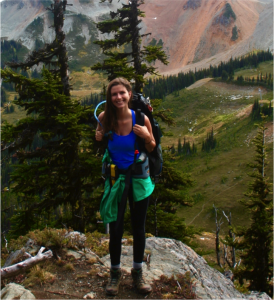 |
| Winy Vasquez – My name is Winy Vasquez and I completed my undergraduate studies in the Faculty of Forestry in the Natural Resources Conservation program in 2017. I joined Dr. Sunderland’s lab as a Master’s student in 2019. During my undergraduate degree in Forestry I joined the co-op program which paved the way for my interest in academia as I was able to work at research institutes both abroad, in Chile and India and at home, in the Faculty of Forestry. For my thesis research I will be working in collaboration with an Indigenous community in Peru that lives inside of, or in proximity to, a protected area in order to assess how their food security may be impacted and to gain a better understanding of what their local food system entails. I will be undertaking fieldwork in Peru in 2020, where I will be employing a variety of research methods such as household questionnaires, semi-structured interviews and photovoice exercises with youth. By undertaking this research, I hope to be able to highlight the many contributions forests make to healthy and sustainable diets as well as contribute to better-informed food related policies that strengthen Indigenous food systems.
Email: winyvas@student.ubc.ca | ResearchGate | Google Scholar | LinkedIn |
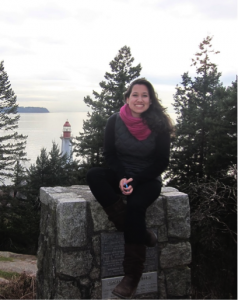 |
| Debbie Pierce is a PhD student in the Sunderland lab. Her research is in tropical forestry, land tenure, and gender. She grew up in Ann Arbor, Michigan and graduated with a double major in economics and environmental policy from the University of Michigan. After graduation she spent a year working in environmental philanthropy and non-profit organizations in New York City. She received a masters in environmental science and management from the University of California, Santa Barbara, where she worked to develop a business model for the sale of biochar on California farms and vineyards. While at the University of California, Santa Barbara she worked with Dr. Gary Libecap on a land demarcation and land value project in California and Ohio. Prior to beginning her PhD she spent four years at the World Bank in Washington, DC working on indigenous peoples, gender and forestry issues. During this time she worked in Latin America and Africa, specifically working with forest-dependent communities in Mexico, Peru, Brazil and Burkina Faso.
Email: debbiepi@mail.ubc.ca | Personal Website | ResearchGate | Google Scholar |LinkedIn |
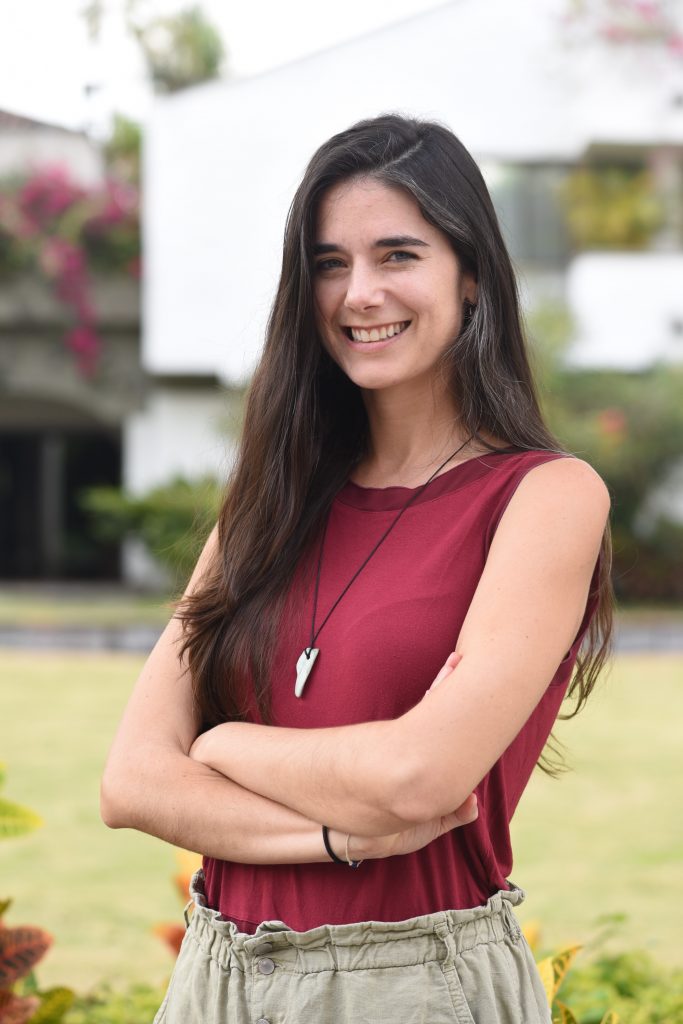 |
| Samuel Adeyanju – I am a PhD student (Four Year Doctoral Fellow) under the supervision of Dr. Terry Sunderland. My research broadly focuses on African environmental politics with special interests in livelihoods and community forestry. I was a Mastercard Foundation Scholar (2017 – 2020) at the University of British Columbia, Canada where I obtained an MSc in Forestry. My MSc research focused on the co-existence of formal and informal institutional arrangements in managing cultural landscapes in Southwest Nigeria. I have researched various forest management and environmental related issues in Ghana, Zambia, and Tanzania. In 2020, I interned at the Food and Agriculture Organization Headquarters in Rome and traveled for conferences in Germany, Rwanda, Ghana, United Kingdom, and the United States. I graduated with a First Class in Forestry and Wood Technology from the Federal University of Technology, Akure, Nigeria in 2016.
Email: adesam1@student.ubc.ca | Personal Website |ResearchGate | Google Scholar |LinkedIn |
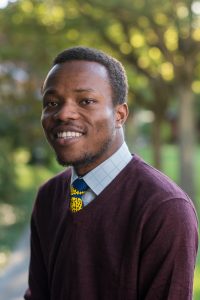 |
| Molly Zhang – Molly Zhang is a PhD student at the Institute for Resources, Environment, and Sustainability (IRES) at the University of British Columbia (UBC), under the supervision of Professor Terry Sunderland in UBC Forestry. Her research focuses on the potential of native edible plants, aiming to understand the socio-ecological outcomes of integrating Indigenous food plants and identifying the factors that facilitate or limit their incorporation into food systems.Molly holds a B.Sc. in Forestry from UBC and an M.Sc. in Environmental Science from the University of Cologne, Germany. Her previous research explored the challenges and opportunities of Indigenous edible plants in the townships of Cape Town, South Africa, from the perspective of smallholder farmers.She is a recipient of UBC Four Year Fellowship (4YF), President’s Academic Excellence Initiative PhD Award, BiPOC Graduate Excellence Award, and the Faculty of Science Graduate Award. In addition to her research, Molly is an active Environmental Scientist working with different levels of government in BC.Outside of work, Molly enjoys writing, dancing, and outdoor activities. When she’s not working, you can often find her writing blog posts, dancing salsa rueda, or camping by a river.
Email: Zhangm9@student.ubc.ca | Google Scholar | LinkedIn |
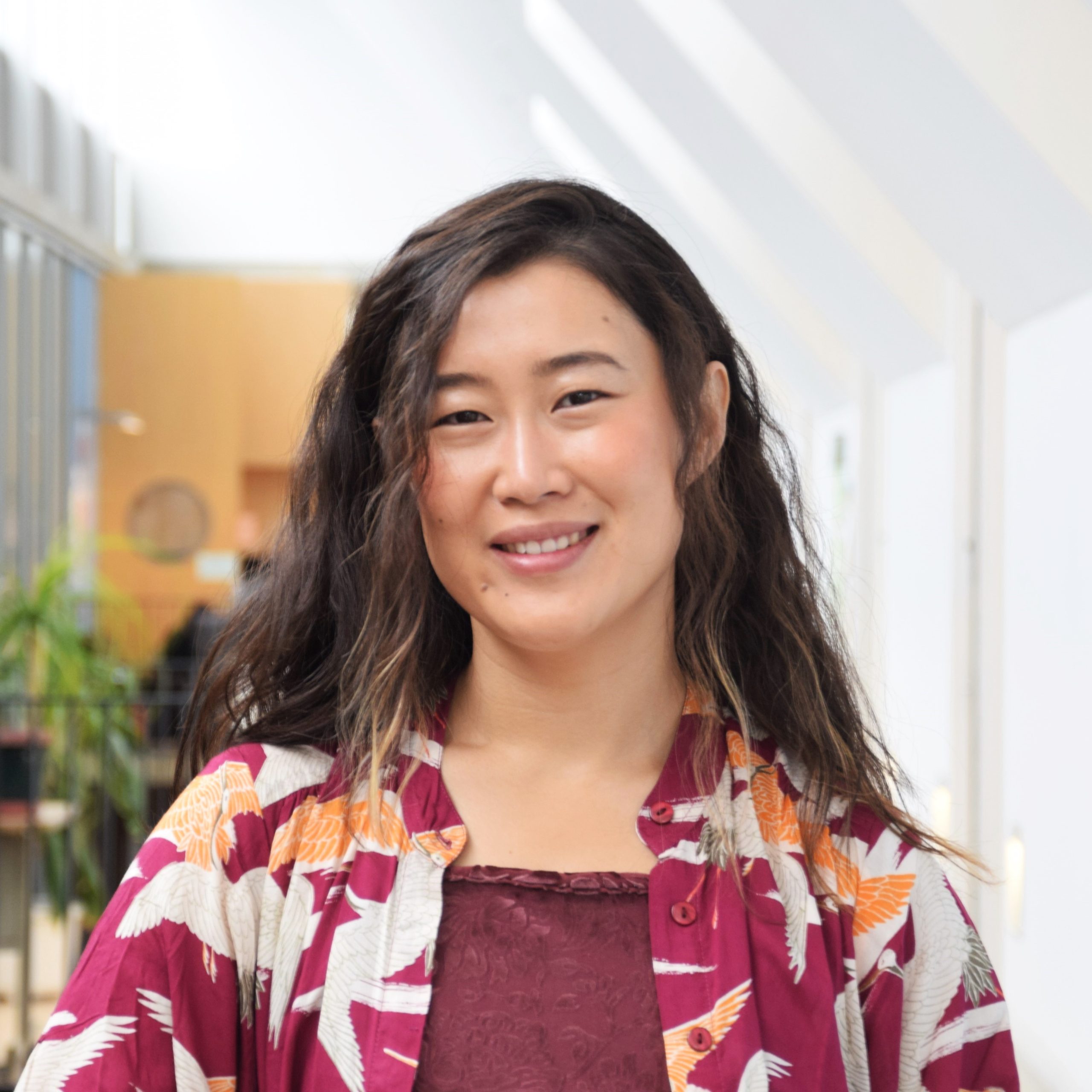 |
Masters Students
| Sarah Sra – I am a Master’s student working under the supervision of Dr. Terry Sunderland. I am passionate about wildlife conservation and rural livelihoods, and my research focuses on human-wildlife conflict in the Kavango-Zambezi Transfrontier Conservation Area in Namibia. Prior to joining the Sunderland lab, I completed a bachelor’s degree in Human Geography with Environmental Specialty from Simon Fraser University, followed by a Master of International Forestry degree from UBC. I then spent close to one year working with the Namibia Nature Foundation on Community Based Natural Resources Management projects related to fisheries, Indigenous rights, forest policy, and wildlife conservation. I am currently working as a Conservation Planner with the Canadian Wildlife Federation’s BC Fish Passage Restoration Initiative.
Email: sarahsra@student.ubc.ca | LinkedIn |
 |
Alumni
| Ngozi Edum – Thesis: Justice Dimension of Bioeconomy Strategies of South Africa and Costa Rica.Ngozi Edum is currently working part-time as a Partnership and Innovation Manager with DEAN, an NGO based in Nigeria, leading the organisation to win a $200,000 grant to implement a Climate Justice Fellowship for 20 local climate actors from the Lake Chad Region (https://www.cjrfund. |
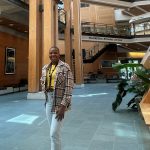 |
| Joseph Mumuni – Thesis: Optimising multi-stakeholder participation and collaboration for deforestation-free cocoa supply chain: lessons from integrated landscape approaches in GhanaJoseph currently works as a Project Officer at Reforest’Action. He is based in Ghana with occasional travels to Tanzania, France and Nigeria. As a project officer, he offers expert advise on the implementation and monitoring of landscape restoration/nature-based solutions’ projects in West and East Africa. Their current projects specifically involve regenerative agriculture in agroforestry systems and mangrove restoration.
Publications:
Website: https://josephmumuni.wordpress.com/ (includes links to Twitter, LinkedIn, ResearchGate, Facebook and ORCID) |
 |
| Sheriff Ola – My name is Sheriff Ola. I graduated with an MSc in Forestry program after defending my research on co-managing rattan harvesting in Ghana. I also have a background in information science with specialization in data science from UBC. Again, I have professional experience in the natural resource sector in West Africa, including in Ghana, Liberia and Ivory Coast. Primarily, I am interested in studying the role of information services consulting in driving forest and natural resource investments. Other research interest includes NTFP commercialization and livelihood implications for resource dependent communities. My ultimate aim is to improve my knowledge in these areas in order to be able to make meaningful impacts, both academically and professionally. |


